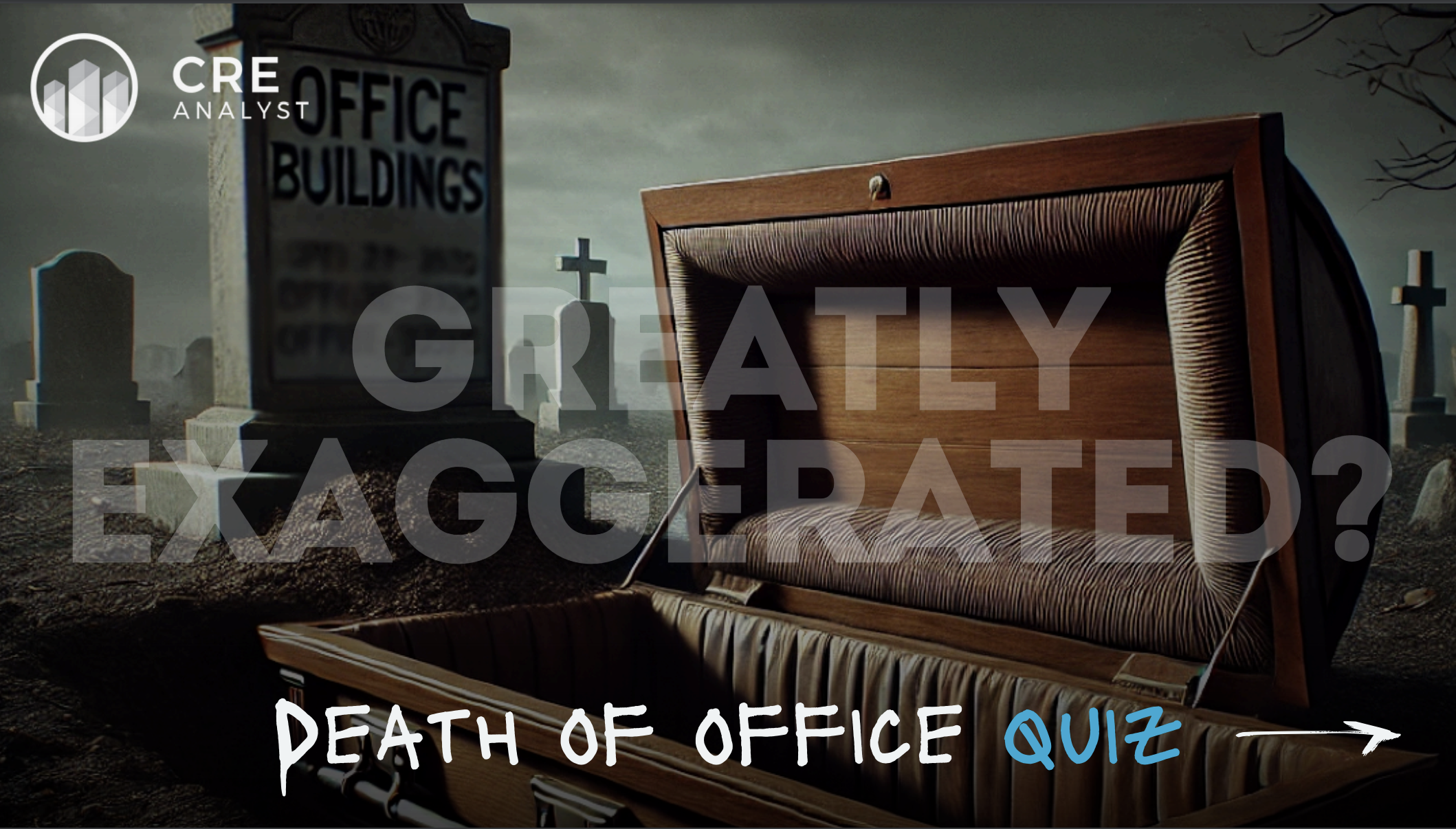
How to make a fortune: storytelling
If you can combine observations in a way that resonates with human nature, excites, alarms, inspires laughter, wows, or motivates your followers, you'll make a fortune.
And if you can spin a narrative that taps into the most fundamental aspect of human nature (fear) you can be rich, powerful AND famous.
There are a few problems with narratives, though.
Whatever you read/watch/listen to has a pulse on your sensibilities. Your outlets feed you what you love and what you love to hate.
And since most of us depend on only a few outlets, they collectively keep pockets of us together like schools of fish, united around topical (but temporary) currents.
Eventually, narratives shift and our schools scatter or get distracted. We regroup and move on to another narrative.
But we rarely backtest old narratives.
Consider these recent headlines:
-- Return to office is 'dead,' Stanford economist says (CNBC)
-- Real-Estate Doom Loop Threatens America's Banks (WSJ)
-- The Real Estate Nightmare Unfolding in Downtown St. Louis (WSJ)
-- The 'office apocalypse' is upon us (Business Insider)
Now flip through this short 'quiz' on the state of the office market.
Do these stats fit with the headlines above? Do they fit with your narrative? Do they make you want to attack the stats or attack the narrative?
A bit of good news...
The growing gap between narrative and reality creates economic opportunities. What are they?
-------------
Thanks for sharing insights from CBRE's recent occupier survey Jessica M., Charlie Donley, Julie Whelan, and Richard Barkham. And thanks to Green Street for consistently publishing insightful real-time reads on property values (CPPI).
If you can combine observations in a way that resonates with human nature, excites, alarms, inspires laughter, wows, or motivates your followers, you'll make a fortune.
And if you can spin a narrative that taps into the most fundamental aspect of human nature (fear) you can be rich, powerful AND famous.
There are a few problems with narratives, though.
Whatever you read/watch/listen to has a pulse on your sensibilities. Your outlets feed you what you love and what you love to hate.
And since most of us depend on only a few outlets, they collectively keep pockets of us together like schools of fish, united around topical (but temporary) currents.
Eventually, narratives shift and our schools scatter or get distracted. We regroup and move on to another narrative.
But we rarely backtest old narratives.
Consider these recent headlines:
-- Return to office is 'dead,' Stanford economist says (CNBC)
-- Real-Estate Doom Loop Threatens America's Banks (WSJ)
-- The Real Estate Nightmare Unfolding in Downtown St. Louis (WSJ)
-- The 'office apocalypse' is upon us (Business Insider)
Now flip through this short 'quiz' on the state of the office market.
Do these stats fit with the headlines above? Do they fit with your narrative? Do they make you want to attack the stats or attack the narrative?
A bit of good news...
The growing gap between narrative and reality creates economic opportunities. What are they?
-------------
Thanks for sharing insights from CBRE's recent occupier survey Jessica M., Charlie Donley, Julie Whelan, and Richard Barkham. And thanks to Green Street for consistently publishing insightful real-time reads on property values (CPPI).
Read the full report here.

COMMENTS